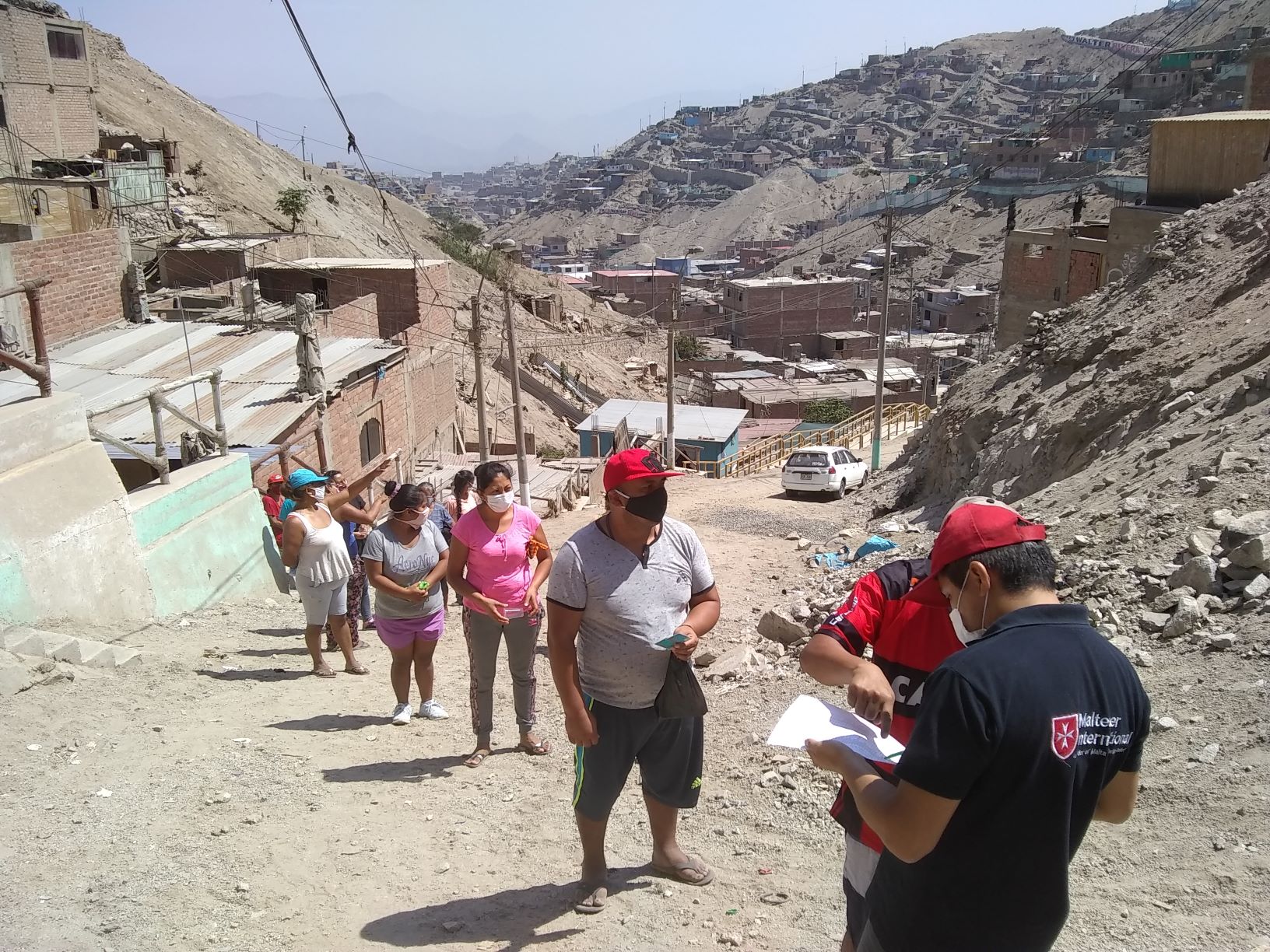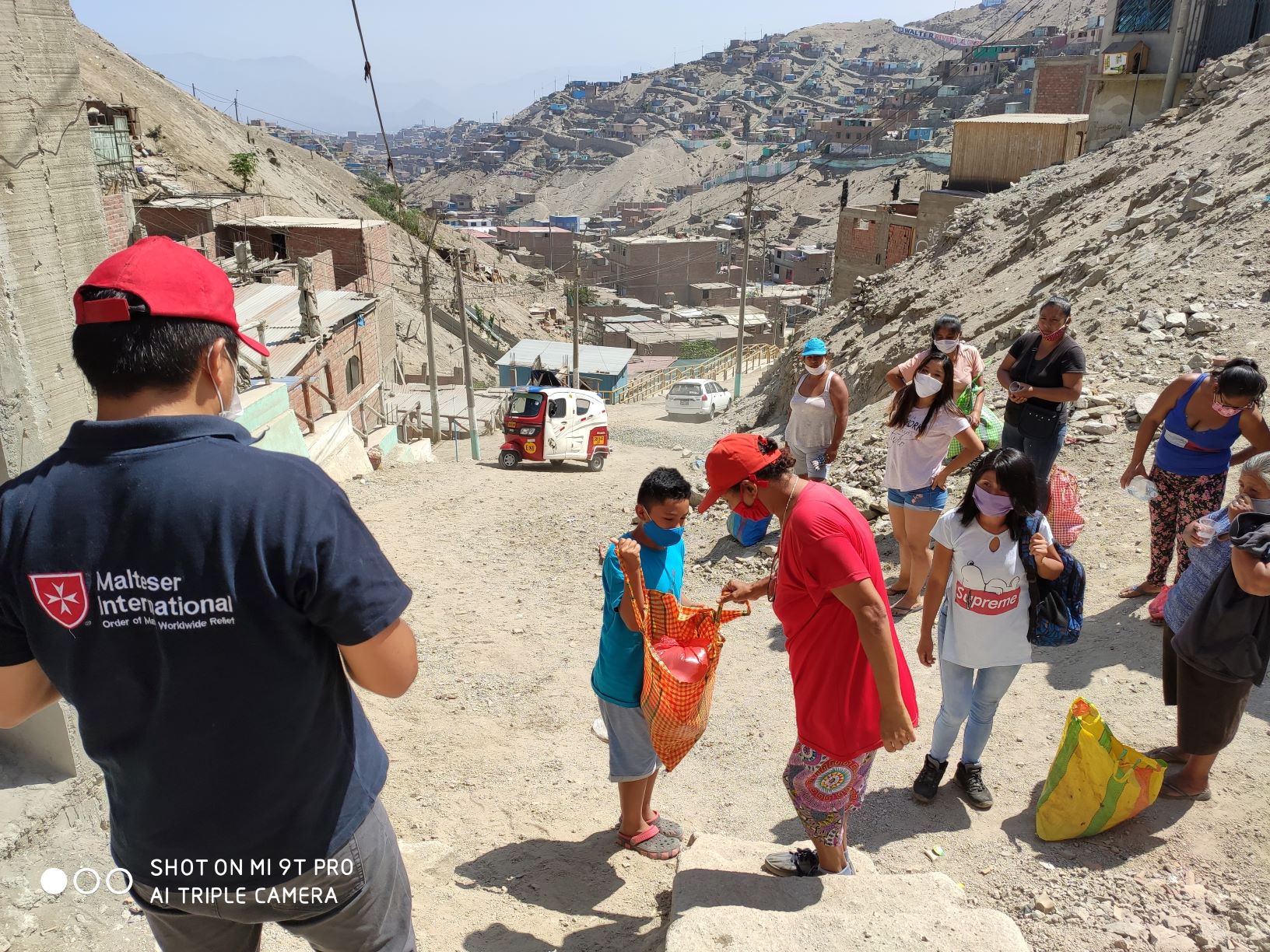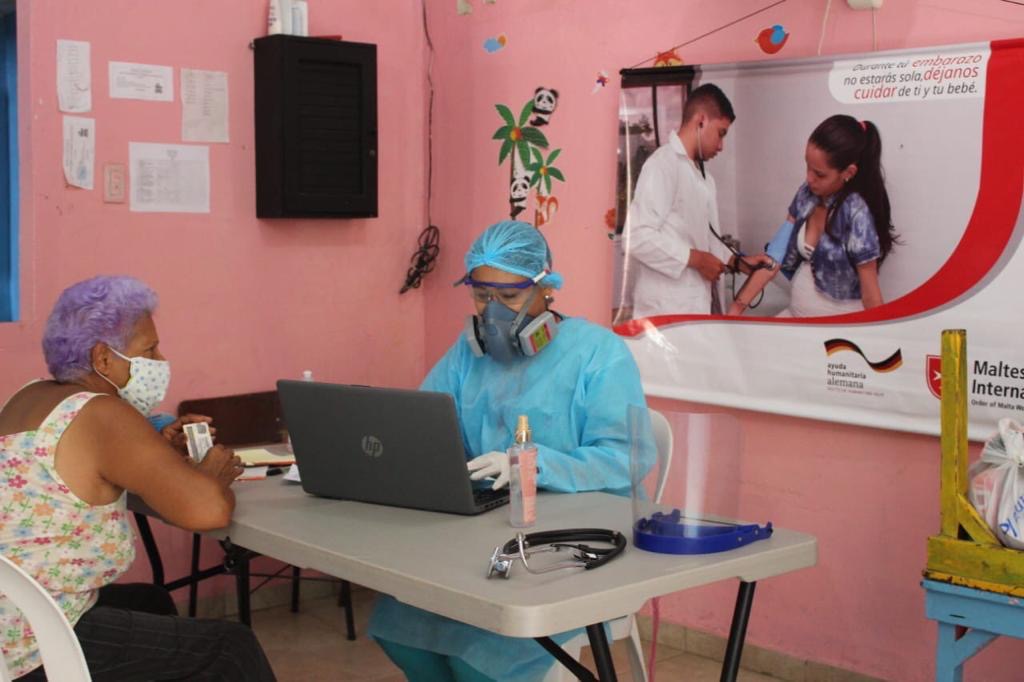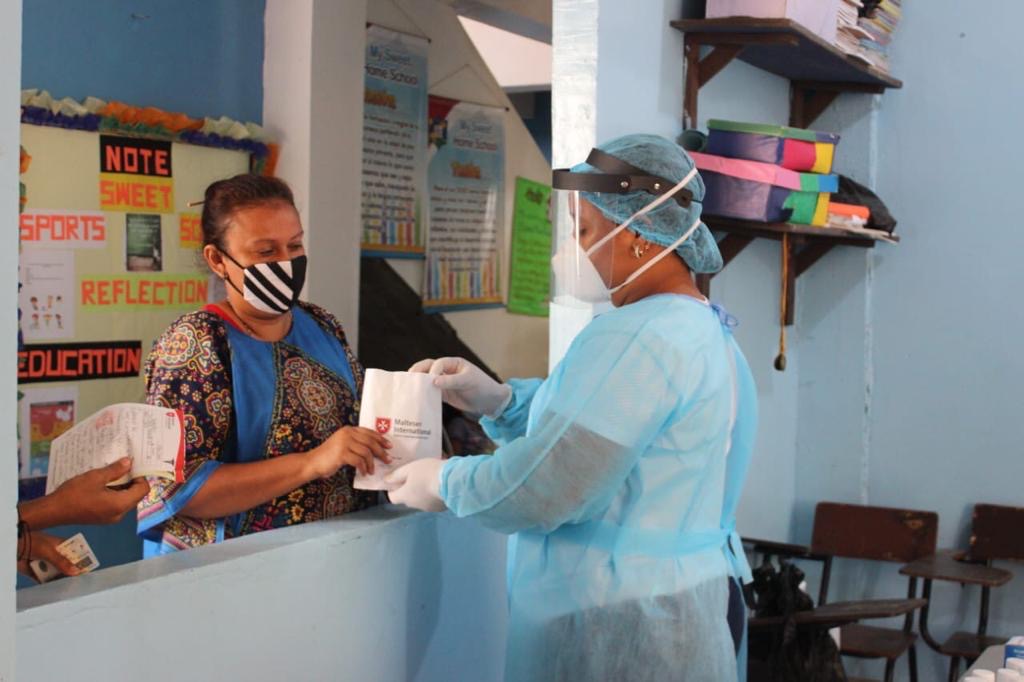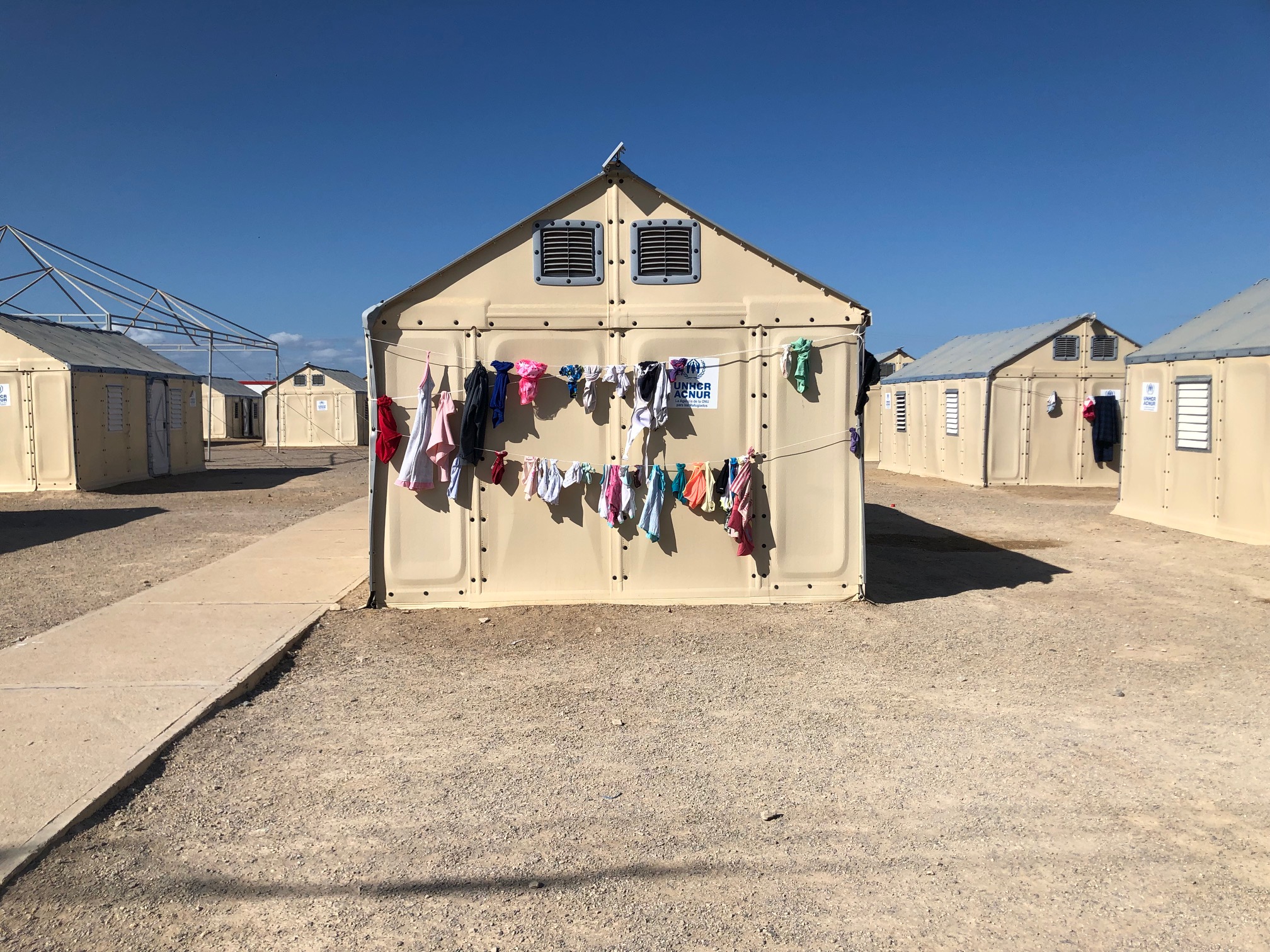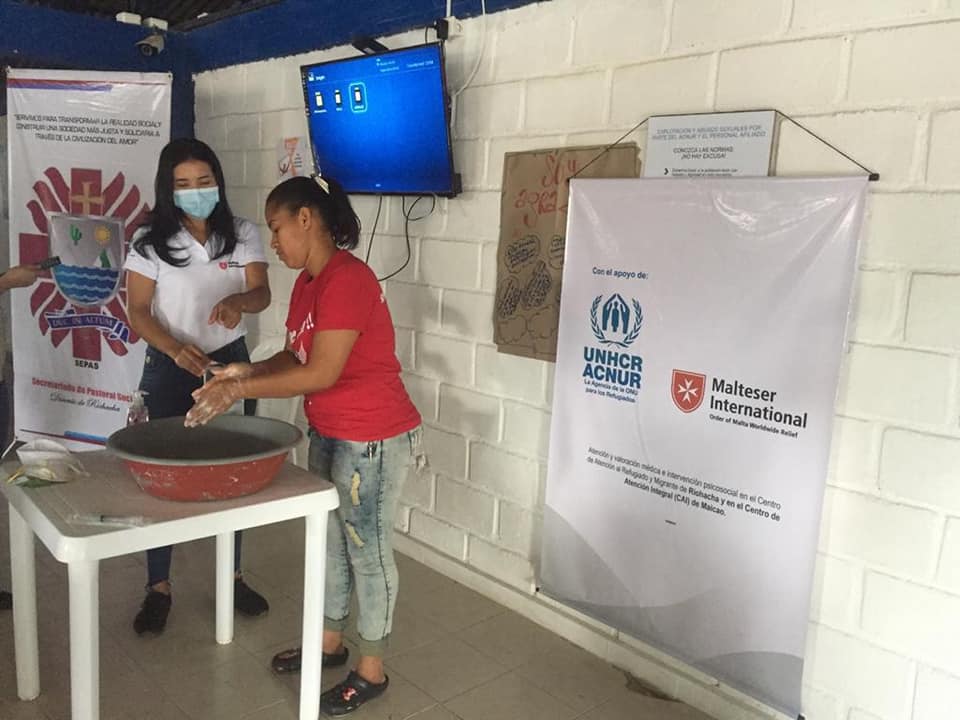International
North America
South America
COVID-19: A Lesson in Preparing Communities to Protect Themselves
Originally published in the Order of Malta American Association’s quarterly publication Hospitallers (Volume 20, Summer 2020).
***
As the world came to a standstill to curb the transmission of COVID-19, international humanitarian organizations were faced with the difficult task of adapting their life-saving activities while expanding their work to address the imminent threat of COVID-19 head-on.
For thousands of families around the Western Hemisphere, Malteser International Americas is the first line of primary care and an important source of public health knowledge. Our work is rooted in the 900-year-old tradition of the Order of Malta, and it stands on its Catholic values and humanitarian principles.
Responding to global pandemics has been a constant aspect of Malteser International’s history – from the Ebola crisis to cholera – each outbreak has taught us valuable lessons. COVID-19 has been no different. And while parts of the United States have curbed transmission and are currently reopening, many countries in the developing world are still vulnerable and suffering great losses.
During this time, our core strategies have proven effective. Among these are our commitment to long-term development projects, our focus on emergency preparedness, and partnerships with local authorities and businesses have been rewarding.
“Strengthening the capacity of communities to deal with emergencies is key. But this is accomplished incrementally and over time. There are no short-cuts with this type of work”
– Ravi Tripptrap, Executive Director of Malteser International Americas.
One of the great challenges has been adapting to each country’s COVID-19 response, which have varied in approach and intensity. In some places, restrictions on travel and economic activities have not only affected the people we serve but also the ways in which we deliver our services.
In Lima, Peru, a soup kitchen for poor children we support has gone mobile. Many of the parents have lost their livelihoods during the country’s strict lockdown and are in dire need of assistance. Our partner, Malteser Peru, has been taking the food and hygiene provisions to their neighborhoods. During their April and May visits, they identified families that were living in extreme poverty and malnutrition.
In Colombia, our prenatal care services for Venezuelan women are essential for hundreds of migrants and refugees that face barriers to healthcare. Pausing this program was not an option and would have endangered many new lives. Instead, we introduced biosecurity measures to ensure that consultations and follow-ups were kept without endangering our patients or staff.
Countries with existing humanitarian crises are particularly vulnerable and less equipped to respond to COVID-19. La Guajira – a focal point of our programs – is one of Colombia’s poorest regions and among the most affected by the large-scale migration from Venezuela. Approximately 200,000 migrants and refugees have settled in the state, putting a significant strain on an already precarious health system.
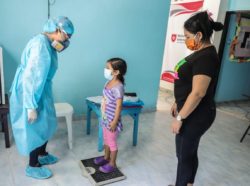
The transmission of COVID-19 has been slow in La Guajira, with 108 cases reported out of a national total of 39,000 (as of mid-June 2020). Strict social distancing measures have been successful, yet the population is reeling from an abrupt economic downturn.
Traditional markets are closed, retail, hotels and restaurants have shuttered, travel is heavily restricted – Colombia banned all air travel in March. As usual, the poorest are the first to suffer.
Our staff in Colombia is working with partners to expand the reach of our regular food distribution activities, which typically benefit migrants and refugee families, to include Colombian families as well. Not only does this improve the general health of the community, it also reduces spikes in xenophobia which can peak during hard times.
“In the following months, we will be implementing COVID19- specific activities in indigenous communities, as well as migrant and refugee communities, to increase the preparedness of those communities and ensure that the messages reach them in a way that is respectful of their language and culture,” says Maria-Bonita Amorim, Medical Coordinator for Malteser International Americas’ office in Colombia.
Much like what we saw in the United States, COVID-19 has made gaps in health and hygiene in Colombia more visible and alarming. These are issues we have been working to fix in La Guajira since we arrived in 2014.
In the region’s arid, rural areas which the indigenous Wayuu inhabit, extreme water shortages, overcrowded living-conditions and poor hygienic practices greatly contribute to the risk of contamination of COVID-19. Access to clean water and plumbing is fundamental to public health and recent news of rising coronavirus infections and deaths in indigenous communities throughout the country is of great concern.
In the following weeks, with the support of our donors and the United States government, we will be improving water storage capacity infrastructure for 1,300 families in Wayuu communities, and working hand-in-hand with the local government to secure water supply.
The approach to protect the Wayuu must be comprehensive and we are working on the entire chain. From community prevention, through the distribution of handwashing kits and training of community hygiene volunteers, to hospital triage; each step is designed to make sure communities are not forgotten and receive the health knowledge and care that adapts to their culture and traditions.
Local partnerships and solutions can also be lifesaving. Early on, our medical teams in Colombia became alarmed as shortages of personal protective equipment threatened the COVID-19 response in the region.
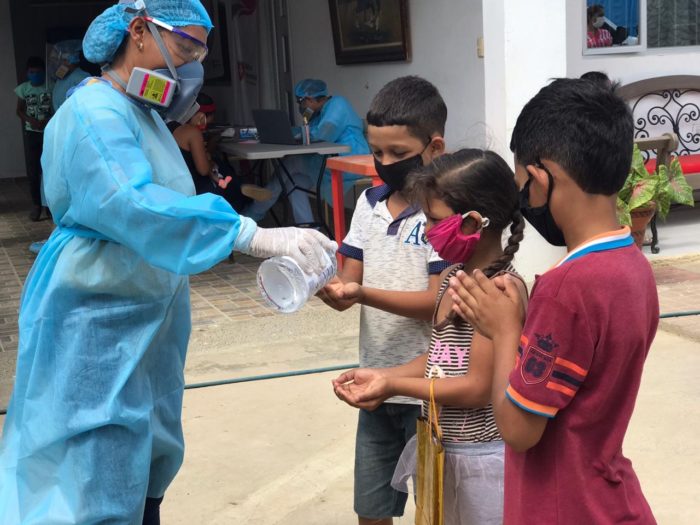
Face masks, hand-sanitizers and other medical supplies are crucial tools to safeguard the people we serve as well as our personnel. As local sources of these materials were depleted, and importing them became increasingly difficult, we chose to direct our resources towards promoting production.
We are launching a partnership with the University of Magdalena in Santa Marta, to produce facemasks and disinfectants. This will boost the local economy and create a more sustainable supply-chain for these types of items. This type of intervention also contributes to achieving the goals of emergency preparedness planning and local resiliency.
Collaboration is at the heart of Malteser International’s approach to humanitarian work. We partner with 27 National Associations and Priories of the Order of Malta, that support our activities within their jurisdictions. As our presence in the Western Hemisphere continues to grow so do our historic and productive ties with the members of the Order.
In New York City – our hometown – we recently worked with the New York City Police Department and members of the American Association of the Order of Malta, to deliver food and hand-sanitizers to food pantries in Queens. This symbolic effort is representative of our commitment to help communities throughout the Americas where we distributed face masks and other personal protective equipment to individuals in more than 40 parishes
COVID-19, a global pandemic like none other we had seen in our lifetime, has required that we come together to develop a global, coordinated response. We believe that the values of the Order of Malta have prepared us for the task and the many challenges that lie ahead.
